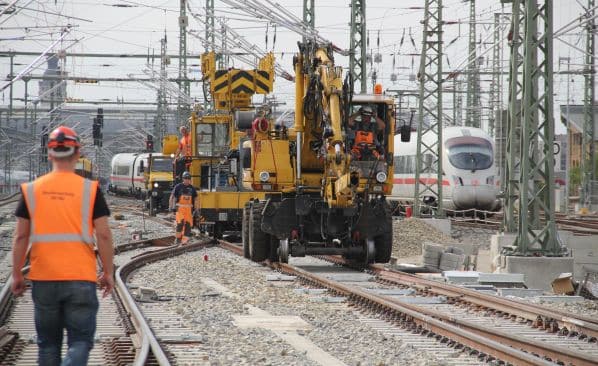GERMANY’s Railway Industry Association (VDB) says it is sceptical about the draft federal budget for 2024 and financial plan up to 2027, which was approved by the German federal cabinet on July 5.
The budget is expected to result in a 6.4% reduction in forecast national spending from €476.3bn this year to €445.7bn next year. Small increases in spending are foreseen in the three following years of 1.4% in 2025, 1.9% in 2026 and 1.5% in 2027.
In its budget statement, the federal government says it reaffirms the decision of the coalition committee of March 28 to cover up to €45bn of German Rail’s (DB) investment needs, mainly by using a share of the revenue from the CO2 surcharge on heavy goods vehicles, which will be used primarily for investment in the railways. However, the government says it will examine how a contribution of €15bn can be made over the next two years to cover investment needs.

“The government’s draft of the 2024 federal budget lacks a reliable investment strategy for rail infrastructure,” says VDB CEO, Ms Sarah Stark. “Significantly less investment funds have been allocated for the modernisation of the railways than agreed by the coalition in March.
“This leaves a financing gap. The funds for the maintenance of the railways are increasing, that is important. However, against the background of increases in personnel costs, material prices and energy costs, this is hardly more than an adjustment for inflation.
“As a result, the network will continue to deteriorate. Future projects such as the high-performance network and a large part of the digitalisation programme will be postponed indefinitely.”
Stark says that in order for the rail network to be comprehensively renewed, digitised and expanded at crucial points, “it is urgently necessary for the federal government to provide the additional funding requirement of €45bn by 2027 that was agreed by the coalition committee.
“The draft of the 2024 federal budget confirms the decision of the coalition committee of March 28 on necessary rail investment. However, political goals translate only with difficulty into the federal government's budget line. Significantly less money is indicated than announced in the coalition decision.”
“Instead of the additional €11bn per year needed for a stable rail network, the investment amount in the draft budget will only increase by just under €3bn,” VDB says. “At the same time, the pressure to act for accelerated modernisation is increasing. For example, Germany would have to digitise five times as much and electrify twice as fast in order to achieve its transport policy goals for rail in time.”
“Isn't the common goal to increase the capacity and quality of rail transport in order to get more people and goods on the tracks quickly?” asks VDB managing director, Mr Axel Schuppe. “The rail industry is ready for this.”
Schuppe says the planned increase in digitisation funding in 2024 to €1.33bn is right, but this will only be slightly better than the hand-to-mouth funding that existed before. “Railway infrastructure is a decade-long project and cannot simply be bought ad hoc in the construction market,” Schuppe says.

